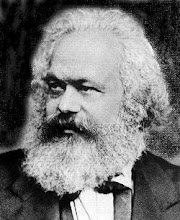John Curran and Brian Pollard
One of us (BP) believes that beards, a natural state of affairs, signify wisdom. The other thinks that they are dirty, suiting woolly minded academics disinclined to arise for the morning ablutions. A controlled study was needed
Subjects, methods, and results
All 62 readily identifiable male professors, readers, and senior lecturers and 83 NHS consultants in anaesthesia unwittingly took part in a controlled study. The NHS group was randomly selected from a seated block at a recent anaesthetic scientific meeting, data being recorded on the back of its programme (2B blunt pencil). Academics' details were recorded into an electronic spreadsheet (Excel version 6 running on an IBM compatible PC with 120 MHz Pentium processor). Facial hair was defined as a recognisably maintained beard or moustache. Designer stubble was ignored, and data were compared with a chi-2 test with significance set at the 5% level.
Of the 62 academics, 21 (34%) wore beards or moustaches, compared with only five of the 83 (6%) NHS consultants (P<0.01; relative risk 5.62 (95% confidence interval 2.24 to 14.1)).
Comment
Against expectation, academic anaesthetists, who are old enough to secrete sufficient androgens to maintain a beard,(1) shave less than their colleagues in the NHS. Why?
Over 2000 years shaving habits have varied. Beards such as that worn by Van Dyke have eponymous status. Martial compared unshaven men to male goats, while Alexander led the Greeks and Scipio the Younger the Romans to shave daily - difficult without electric or modern safety razors. The coinage of many emperors and proconsuls depicts them bearded, and a young man's first shave of lanugo by the well paid tonsor was ceremomal - deposito barba.(2) St Clement of Alexandria thought shaving effeminate, and since the Council of Calcedon so required, clergy of the Orthodox, Church wear beards, often of magnificent size. Many teachers of Islam and Judaism are also bearded. Though the early Western Christian Church required clergy to shave Clerici barbam ne nutriant - the portraits of sixteenth century popes show them bearded, but in 1863 this innovation was discouraged and most Catholic secular clergy now shave.(3)
None of this resolves our disagreement. HP regards "Tarry at Jericho until your beards be grown"(4) as endorsement of the maturity of men who have beards. He thinks that it is absurd that the association between beards and academic status confirms their mutual undesirability. He believes a later levee for academics acceptable by efficient use of the remaining hours they work.
JC, hesitating to speculate on the theory that a beard hides a weak face, knows that research is assembled to confirm what is obvious. Only the ecclesiastical evidence and fear of divine retribution prevents him concluding that beards and academic status each prove the weakness of the other. He lays store by a seventeenth century proverb, reminiscent of Martial's view, "If the beard were all the goat might preach."(5)
We thank Father Peter Ingman, priest of the Catholic Diocese of Nottingham, and Father Denis Gill, Russian Orthodox Priest, for their help.
Funding: None.
Conflict of interest: HP, academic, has a moustache; JC, a shaver, is an NHS consultant.
References
1 Braun-Falco 0, Plewig 0, Wolff H H, Winkelmann R K. Dermatology. New York: Springer, 1991:757.
2 Carcopino J. Daily life in ancient Rome. Harmondsworth: Penguin, 1956. (Translated by E 0 Lorimer.)
3 Addis W; Arnold T. A Catholic dictionary. London: Virtue, 1954.
4 Holy Bible (King James version) 2 Samuel x, 5.
5 Browning D C. Dictionary of quotations and proverbs. Everyman edition. London: Dent, 1987.
Nottingham City Hospital,
Nottingham NG5 1PB
John Curran, consultant anaesthetist
Manchester Royal Infirmary,
Manchester M13 9WL
Brian Pollard, senior lecturer in anaesthesia
Correspondence to: Dr Curran.
 0
comments
Friday, 18 December 2009
0
comments
Friday, 18 December 2009




















.jpg)







